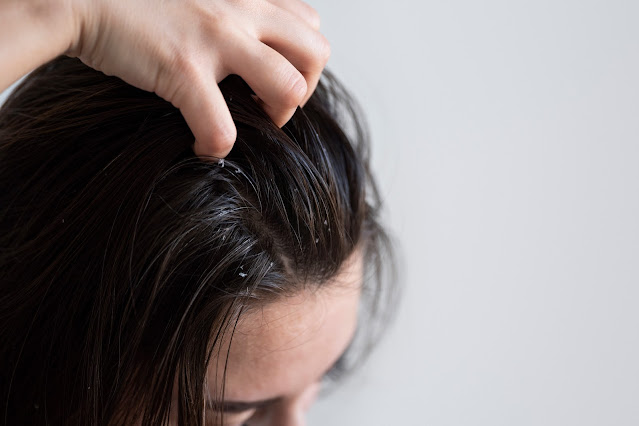Featured
Tips for oily hairs: Proper guide

Are you tired of dealing with oily hair? If so, you're not alone. Many people struggle with excessive oil production in their hair, which can make it look greasy and flat just hours after washing. However, there are several professional tips you can follow to manage oily hair and keep it looking fresh and clean for longer.
In this comprehensive guide, we'll delve into the causes of oily hair, explain how to choose the right shampoo and conditioner, provide tips for styling and maintenance, and discuss the role of diet in managing oily hair. By following these tips, you can say goodbye to greasy locks and hello to healthy, beautiful hair.
- Understanding the Causes of Oily Hair
Before we dive into the tips for managing oily hair, it's important to understand why hair becomes oily in the first place. The sebaceous glands in your scalp produce sebum, an oily substance that moisturizes and protects your hair and skin. However, when these glands produce too much sebum, it can make your hair look greasy and dirty.
There are several factors that can contribute to excessive oil production in the scalp. Hormonal changes, such as those that occur during puberty or pregnancy, can stimulate the sebaceous glands and cause them to produce more sebum. Genetics can also play a role, as some people are simply predisposed to producing more sebum than others.
Environmental factors can also contribute to oily hair. Hot and humid weather, for example, can cause your scalp to produce more sweat, which can mix with the sebum and make your hair look greasy. Using hot styling tools, such as flat irons and curling irons, can also stimulate the sebaceous glands and cause excess oil production.
- Choosing the Right Shampoo and Conditioner for Oily Hair
One of the most important factors in managing oily hair is choosing the right shampoo and conditioner. Look for a clarifying shampoo that's specifically designed for oily hair or that contains ingredients like tea tree oil or salicylic acid, which can help regulate oil production. Avoid shampoos that contain heavy moisturizers or oils, as these can weigh down your hair and make it look greasy.
It's also important to condition your hair properly. While it's important to keep your hair clean, it's also important to condition it properly. Use a lightweight conditioner that's formulated for oily hair and apply it only to the ends of your hair, avoiding the scalp. This will help prevent excess oil buildup on your scalp while still keeping your hair hydrated and healthy.
- Styling and Maintenance Tips for Oily Hair
In addition to choosing the right products, there are several styling and maintenance tips that can help you manage oily hair.
First, avoid touching your hair too much. The natural oils on your fingers can transfer to your hair, making it look greasy. Instead, try to keep your hands away from your hair as much as possible.
Second, try to avoid using hot styling tools as much as possible. If you do need to use them, use them on the lowest setting possible and use a heat protectant spray to minimize damage to your hair.
Third, consider using dry shampoo in between washes. Dry shampoo can help absorb excess oil and give your hair a fresh, clean look without having to wash it every day.
Fourth, wash your hair regularly but not too frequently. Washing your hair every day can actually stimulate the sebaceous glands and cause them to produce more oil. Instead, aim to wash your hair every other day or every two days, depending on your hair type and level of oil production.
- The Role of Diet in Managing Oily Hair
Finally, it's important to note that diet can also play a role in managing oily hair. Eating a balanced diet that's rich in vitamins and minerals can help keep your hair healthy and reduce oil production. Foods that are high in vitamin A, such as carrots and sweet potatoes,
can help regulate oil production in the scalp. Foods that are high in omega-3 fatty acids, such as salmon and walnuts, can also help keep your scalp healthy and reduce inflammation, which can contribute to oily hair.
In addition, it's important to drink plenty of water to keep your body hydrated and flush out toxins that can contribute to oily hair. Avoiding processed and high-fat foods can also help keep your scalp and hair healthy.
Conclusion
Managing oily hair can be a challenge, but by following these professional tips, you can keep your hair looking fresh and clean for longer. Understanding the causes of oily hair, choosing the right shampoo and conditioner, practicing proper styling and maintenance, and eating a healthy diet can all help regulate oil production in the scalp and keep your hair looking healthy and beautiful. With a little bit of effort, you can say goodbye to greasy locks and hello to gorgeous, healthy hair.
- Get link
- X
- Other Apps
Popular Posts

5 Best Concealer Dupes: Affordable Alternatives to High-End Brands
- Get link
- X
- Other Apps

5 Best and Affordable Makeup Setting Powders for Dry Skin
- Get link
- X
- Other Apps
Comments
Post a Comment